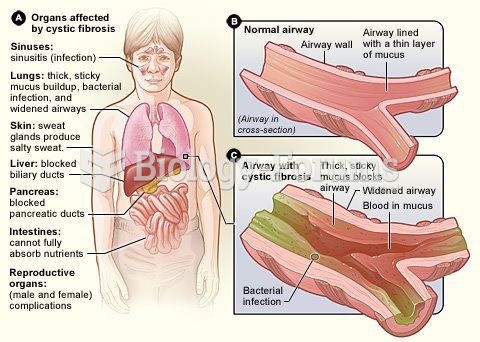|
|
|
Parkinson's disease is both chronic and progressive. This means that it persists over a long period of time and that its symptoms grow worse over time.
The heart is located in the center of the chest, with part of it tipped slightly so that it taps against the left side of the chest.
Drugs are in development that may cure asthma and hay fever once and for all. They target leukotrienes, which are known to cause tightening of the air passages in the lungs and increase mucus productions in nasal passages.
Asthma-like symptoms were first recorded about 3,500 years ago in Egypt. The first manuscript specifically written about asthma was in the year 1190, describing a condition characterized by sudden breathlessness. The treatments listed in this manuscript include chicken soup, herbs, and sexual abstinence.
The most common treatment options for addiction include psychotherapy, support groups, and individual counseling.
 An inguinal hernia. A portion of the small intestine is protruding through the abdominal muscles int
An inguinal hernia. A portion of the small intestine is protruding through the abdominal muscles int
 Normal development of posture and spinal curves. (A) Toddler: Protruding abdomen; lumbar lordosis. (
Normal development of posture and spinal curves. (A) Toddler: Protruding abdomen; lumbar lordosis. (





